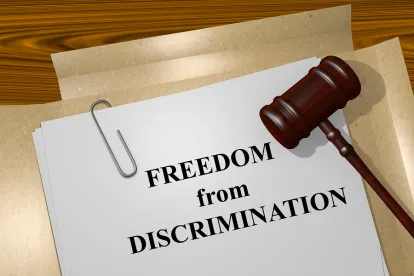Living in this 'post Weinstein' world, the recent President's Club scandal has sparked efforts to bring the law in England and Wales into line with #metoo movement.
A petition (which currently has over 100,000 signatures) was recently started to reinstate s.40 of the Equality Act 2010. This section was intended to prevent contractors or customers making derogatory racial comments, or making unwanted sexual advances to employees. Employees could bring a claim against their employer if they could prove that the employer knew the employee had been harassed by a third party on at least two occasions and did not take reasonable steps to prevent it. However, s.40 was repealed in 2013 as the government deemed it "unworkable", "needless bureaucracy" and seen as a "barrier" to growth.
Third-Party Harassment Case Law
With no legislative provision, we need to look to case law for guidance.
Burton and Rhule v De Vere
In the infamous case involving comedian Bernard Manning, the Employment Appeals Tribunal (EAT) held that an employer could be liable for discriminatory remarks made to employees by a person not employed by them. In the case, the De Vere Hotel was found liable for third-party harassment for observing and allowing two waitresses to be subjected to racist jokes made by Manning during his performance at their hotel, despite the fact that the comedian was not an employee of the hotel. A strong factor behind this decision was that Bernard Manning was well-known for making the types of comments he subjected the waitresses to, which the hotel would have known about.
Pearce v Governing Body of Mayfield Secondary School
However, in Pearce, the House of Lords said that the Manning case had been wrongly decided. They stated that for an employer to be liable for third-party harassment, it must have had a discriminatory reason (i.e., their motive for failing to prevent the harassment must be related to an employee's protected characteristic). An employer can't be liable for a mistaken or inadvertent omission to act.
Conteh v Parking Partners Ltd
Conteh was another "employer friendly" case in which the EAT said that an employer's failure to take action in the face of third-party harassment will rarely create a "hostile environment" which is necessary in order to establish harassment. For example, if a manager does not take action because he or she is off sick, or if the employer is so disorganised that they do not get around to dealing with issue, this cannot be discrimination as the inaction does not relate to the employee's protected characteristic.
Sheffield City Council v Norouzi (2011)
The EAT again went further in a case involving Mr. Norouzi, an Iranian social worker who worked at a home for troubled children. One child was regularly aggressive to him on racial grounds. On one occasion the child even said that she "would like to blow up the whole of Asia and all Asians".
The EAT held that child's conduct constituted harassment, but they had to consider whether his employer had done enough to protect Mr. Norouzi. Despite Mr. Norouzi alerting his employer to the harassment, they had let the child's behaviour continue by not investigating the incidents. On the facts, the EAT said that the employer should have put in place more effective support mechanisms to protect Mr. Norouzi and so were liable for third-party harassment.
Whilst this was a just result for Mr. Norouzi, the EAT controversially acknowledged that there are some environments, including prisons, care homes and some schools, where harassment might just be "a hazard of the job" which cannot be easily prevented by the employer. In such situations, the employer is not liable unless the tribunal can set out what they should have done to prevent the harassment.
Conclusion
In summary, when it comes to third-party harassment, the scales currently seem to be tipped in favour of the employer. Notwithstanding this, employers in every sector are struggling to navigate this minefield. Is it just banter? When should HR and managers step in? Where is the line? Staff policies and training in this area are an employer's first line of defence. Should this problem rear its ugly head in your office, carrying out a comprehensive investigation which seeks to protect all parties at every stage is imperative. Clearly the #timesup movement has set the clock ticking for change in this area.





 />i
/>i

